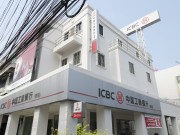Capgemini World Wealth Report 2024: $86.8 Trillion Wealth, 22.8 Million HNWs & 220,000 UHNWs, UHNWs Represents 1% of HNW Population & Owns 34% of HNW Wealth, HNWs > $5 Million Represents 10.1% of HNW Population & Owns 57% of HNW Wealth, HNW Asset Allocation – Cash & Cash Equivalents 25%, Equities 21%, Fixed Income 20%, Real Estate 19%, Alternative Investment 15%
14th June 2024 | Hong Kong
Capgemini has released the World Wealth Report 2024, providing key insights into global HNW wealth & population (high net worth), wealth management & family offices services in 2023. In 2023, the HNW Population in 2023 is 22.8 million, and HNW Wealth is $86.8 trillion. UHNW Population (> $30 million) – 220k, HNW Population ($5 m to $30 million) – 2.075 million, HNW Population ($1 m to $5 million) – 20.53 million. Wealth Ownership by Population of UHNW (> $30 million) – 34% of HNW Wealth. Wealth Ownership by Population of HNW ($5 m to $30 million) – 23% of HNW Wealth. Wealth Ownership by Population of HNW ($1 m to $5 million) – 43% of HNW Wealth. Wealth Ownership UHNW – 1% of HNWs (220k) owns 34% of HNW Wealth. Wealth Ownership HNW ($5 m to $30 million) – 9.1% of HNWs (2.075 million) owns 23% of HNW Wealth. Wealth Ownership HNW (with $1 m to $5 million) – 89.9% of HNWs (20.53 million) owns 43% of HNW Wealth. Wealth Ownership HNW (> $5 million) – 10.1% of HNWs (2.295 million) owns 57% of HNW Wealth. HNW Wealth by Region – North America $27.5 trillion, APAC $25.7 trillion, Europe $18.9 trillion, Latin America $9.4 trillion, Middle East $3.5 trillion, Africa $1.8 trillion. HNW Population by Region – North America 7.9 million, APAC 7.4 million, Europe 5.8 million, Middle East 900k, Latin America 600k, Africa 200k. HNW Asset Allocation – Cash & cash equivalents 25%, Equities 21%, Fixed income 20%, Real estate 19%, Alternative investment 15%. Top 3 Biases influencing HNW investment decisions – Seek information from sources that align with my views, Open to grab opportunities without extensive deliberations, Hold onto under-performing investments for an extended period. Top 4 concerns in 2024 for Wealth management executives – Threat of recession, Evolving interest rates, Stock market uncertainty, Geopolitical upheaval. Top 5 Financial value-added services for UHNWs – Investment management, Inheritance advice, Tax planning, Retirement planning, Real estate investment advice. Top 5 Non-Financial value-added services for UHNWs – Concierge services, Networking opportunities, Legal consultation, Lifestyle advice, Aggregated view of investments across multiple jurisdictions. Self-made UHNWI – Significant shift in UHNWI population composition related to demographics and wealth. Self-made UHNWIs are outpacing those who have inherited their wealth. 20% of UHNW total population is self-made and under 40. UHNW Investments – UHNWIs know they can weather short-term market fluctuations because of long-term investment timelines enabled by their substantial discretionary wealth. As a result, their risk tolerance tends to be higher and more flexible. Highly knowledgeable UHNWIs spark specific demands and active involvement. Passion Investments – 91% of the UHNWIs we surveyed support passion investments such as luxury real estate, wine, coins, and art that may reflect lifestyle choices. Illiquid asset classes – Despite uncertainty around central bank interest rates, UHNWIs are showing increasing interest in illiquid asset classes – homes and other real estate, collectibles and art, and debt instruments. Luxury 2nd homes – Growing appetite for luxury second homes has pushed real-estate advice into the top five of UHNWIs’ service requirements. Single-family offices, exclusively serving one family, are set up by hiring a team of specialists from banking, wealth management, or industry bodies. These offices provide a greater level of control and greater agility than multi-family offices and are viable only to a select group of UHNWIs with a sizeable amount of wealth. Multi-family offices that serve multiple families. Families with investable assets of USD 150 million or less often employ these offices. Family offices typically partner with large banks and wealth management firms to leverage their balance sheets and access global deals. Wealth Management firms have a cybersecurity advantage over family offices based on robust IT budgets and dedicated security teams. Top 5 Wealth Management firm advantages – Stability, Balance sheets, Regulated / licensed, Global presence, Access to club deals. Top 5 Family offices advantages – Transparency, Personalization, Independence, Consolidated view, Education across generations. Wealth Management Firm Services – Planning, Investing, Banking solutions, Wealth management platform, Cybersecurity tools, Value-added services. Integrated touch-points services – Concierge (medical, real estate, travel, education), Aggregated view of assets in multiple jurisdictions, Portfolio performance monitoring, Lifestyle advice, Banking & administrative services, Credit solutions, Insurance. The report is titled Intelligent strategies for winning with the ultra-wealthy – Bridge wealth management & family office strengths to fuel growth. See below for key findings & summary | View report here
“ Capgemini World Wealth Report 2024: $86.8 Trillion Wealth, 22.8 Million HNWs & 220,000 UHNWs, UHNWs Represents 1% of HNW Population & Owns 34% of HNW Wealth, HNWs > $5 Million Represents 10.1% of HNW Population & Owns 57% of HNW Wealth, HNW Asset Allocation – Cash & Cash Equivalents 25%, Equities 21%, Fixed Income 20%, Real Estate 19%, Alternative Investment 15% “
Capgemini World Wealth Report 2024: $86.8 Trillion Wealth, 22.8 Million HNWs & 220,000 UHNWs, UHNWs Represents 1% of HNW Population & Owns 34% of HNW Wealth, HNWs > $5 Million Represents 10.1% of HNW Population & Owns 57% of HNW Wealth, HNW Asset Allocation – Cash & Cash Equivalents 25%, Equities 21%, Fixed Income 20%, Real Estate 19%, Alternative Investment 15%

Capgemini has released the World Wealth Report 2024, providing key insights into global HNW wealth & population (high net worth), wealth management & family offices services in 2023. See below for key findings & summary | View report here
Summary
- HNW Population in 2023 – 22.8 million HNWIs
- HNW Wealth in 2023 – $86.8 trillion
- UHNW Population (> $30 million) – 220k UHNWs
- HNW Population ($5 m to $30 million) – 2.075 million
- HNW Population ($1 m to $5 million) – 20.53 million
- Wealth Ownership by Population of UHNW (> $30 million) – 34% of HNW Wealth
- Wealth Ownership by Population of HNW ($5 m to $30 million) – 23% of HNW Wealth
- Wealth Ownership by Population of HNW ($1 m to $5 million) – 43% of HNW Wealth
- Wealth Ownership UHNW – 1% of HNWs (220k) owns 34% of HNW Wealth
- Wealth Ownership HNW ($5 m to $30 million) – 9.1% of HNWs (2.075 million) owns 23% of HNW Wealth
- Wealth Ownership HNW (with $1 m to $5 million) – 89.9% of HNWs (20.53 million) owns 43% of HNW Wealth
- Wealth Ownership HNW (> $5 million) – 10.1% of HNWs (2.295 million) owns 57% of HNW Wealth
- HNW Wealth by Region – North America $27.5 trillion, APAC $25.7 trillion, Europe $18.9 trillion, Latin America $9.4 trillion, Middle East $3.5 trillion, Africa $1.8 trillion
- HNW Population by Region – North America 7.9 million, APAC 7.4 million, Europe 5.8 million, Middle East 900k, Latin America 600k, Africa 200k
- HNW Asset Allocation – Cash & cash equivalents 25%, Equities 21%, Fixed income 20%, Real estate 19%, Alternative investment 15%
- Top 3 Biases influencing HNW investment decisions – Seek information from sources that align with my views, Open to grab opportunities without extensive deliberations, Hold onto under-performing investments for an extended period
Wealth Management & UHNWs:
- Top 4 concerns in 2024 for Wealth management executives – Threat of recession, Evolving interest rates, Stock market uncertainty, Geopolitical upheaval
- Primary revenue streams – Leading wealth management firms are currently facing substantial pressure
- Management & performance-based fees comprise 55% to 70% of total wealth management revenue
- Transaction & brokerage fees, representing 15% to 25% of total revenue, will also be under pressure due to client preferences for wealth preservation during volatility.
- Shift to higher-yield products – In 2024, investors have shifted their bank deposits to higher-yield products, depleting bank balances. Banks will have to increase the interest rates on their deposits to defend these balances, stressing net interest income.
- Advisory & value-added services fees, which comprise 5% to 10% of the total revenue, are under pressure from fragmented wallet share from HNWIs; these investors tend to divide their wealth between multiple wealth management firms, subscribing to only a few of each firm’s value-added services
- External market factors drive over 80% of a typical wealth management firm’s revenue
- Changes in regulatory frameworks and IT-related costs are putting pressure on wealth management firm margins.
- HNW Strategies to achieve AUM growth – Behavioural finance, Ecosystem play (collaborate with family offices), New revenue streams
- Top 5 Financial value-added services for UHNWs – Investment management, Inheritance advice, Tax planning, Retirement planning, Real estate investment advice
- Top 5 Non-Financial value-added services for UHNWs – Concierge services, Networking opportunities, Legal consultation, Lifestyle advice, Aggregated view of investments across multiple jurisdictions
- Self-made UHNWI – Significant shift in UHNWI population composition related to demographics and wealth. Self-made UHNWIs are outpacing those who have inherited their wealth. 20% of UHNW total population is self-made and under 40
- UHNW Investments – UHNWIs know they can weather short-term market fluctuations because of long-term investment timelines enabled by their substantial discretionary wealth. As a result, their risk tolerance tends to be higher and more flexible. Highly knowledgeable UHNWIs spark specific demands and active involvement.
- Passion Investments – 91% of the UHNWIs we surveyed support passion investments such as luxury real estate, wine, coins, and art that may reflect lifestyle choices
- Illiquid asset classes – Despite uncertainty around central bank interest rates, UHNWIs are showing increasing interest in illiquid asset classes – homes and other real estate, collectibles and art, and debt instruments.
- Luxury 2nd homes – Growing appetite for luxury second homes has pushed real-estate advice into the top five of UHNWIs’ service requirements.
Family Offices:
- Single-family offices, exclusively serving one family, are set up by hiring a team of specialists from banking, wealth management, or industry bodies. These offices provide a greater level of control and greater agility than multi-family offices and are viable only to a select group of UHNWIs with a sizeable amount of wealth.
- Multi-family offices that serve multiple families. Families with investable assets of USD 150 million or less often employ these offices.
- Family offices typically partner with large banks and wealth management firms to leverage their balance sheets and access global deals. Wealth Management firms have a cybersecurity advantage over family offices based on robust IT budgets and dedicated security teams.
- Family offices excel at providing UHNWIs’ top four non-financial value-added services concierge services, networking opportunities, legal consultation, and lifestyle advice.
- Family offices stay close to clients to understand their objectives and assist in decision-making. As a result, they are a step ahead in breaking down family dynamics and establishing a bird’s-eye view of client wealth positions, including non-bankable assets.
An aggregated view of investments across jurisdictions is critical because UHNWIs invest across geographies and asset classes. Family offices can feed portfolio management tools with data from multiple banks to facilitate a consolidated view. - Top 5 Wealth Management firm advantages – Stability, Balance sheets, Regulated / licensed, Global presence, Access to club deals
- Top 5 Family offices advantages – Transparency, Personalization, Independence, Consolidated view, Education across generations
- Wealth Management Firm Services – Planning, Investing, Banking solutions, Wealth management platform, Cybersecurity tools, Value-added services
- Integrated touch-points services – Concierge (medical, real estate, travel, education), Aggregated view of assets in multiple jurisdictions, Portfolio performance monitoring, Lifestyle advice, Banking & administrative services, Credit solutions, Insurance
Capgemini World Wealth Report 2024
1) HNW Wealth & Population Overview
Overview:
- HNW Population in 2023 – 22.8 million
- HNW Wealth in 2023 – $86.8 trillion
HNW Population (2023):
- UHNW (> $30 million) – 220k
- HNW ($5 m to $30 million) – 2.075 million
- HNW ($1 m to $5 million) – 20.53 million
- Total – 22.8 million
HNW Wealth Ownership (2023):
- UHNW (> $30 million) – 34% of HNW Wealth
- HNW ($5 m to $30 million) – 23% of HNW Wealth
- HNW ($1 m to $5 million) – 43% of HNW Wealth
HNW Wealth Ownership by Population (22.8 million HNWs own $86.8 trillion wealth):
- Wealth Ownership UHNW – 1% of HNWs (220k) owns 34% of HNW Wealth
- Wealth Ownership HNW ($5 m to $30 million) – 9.1% of HNWs (2.075 million) owns 23% of HNW Wealth
- Wealth Ownership HNW (with $1 m to $5 million) – 89.9% of HNWs (20.53 million) owns 43% of HNW Wealth
- Wealth Ownership HNW (> $5 million) – 10.1% of HNWs (2.295 million) owns 57% of HNW Wealth
2) HNW Wealth
HNW Wealth from 2016 to 2023 (8 Years):
- 2016 – $63.5 trillion
- 2017 – $70.2 trillion
- 2018 – $68.1 trillion
- 2019 – $74 trillion
- 2020 – $79.6 trillion
- 2021 – $86 trillion
- 2022 – $83 trillion
- 2023 – $86.8 trillion
HNW Wealth by Region:
- North America – $27.5 trillion
- APAC – $25.7 trillion
- Europe – $18.9 trillion
- Latin America – $9.4 trillion
- Middle East – $3.5 trillion
- Africa – $1.8 trillion
- Total – $86.8 trillion
HNW Wealth CAGR (Compound Annual Growth Rate):
- 2016 to 2023 (8 years): +4.6%
- 2022 to 2023 (1 year): +4.7%
HNW Wealth CAGR by Region (2022 to 2023):
- North America: +7.2%
- APAC: +4.2%
- Europe: +3.9%
- Latin America: +2.3%
- Middle East: +2.9%
- Africa: -1%
3) HNW Population
HNW Population:
- 2016 – 16.5 million
- 2017 – 18.1 million
- 2018 – 18 million
- 2019 – 19.6 million
- 2020 – 20.8 million
- 2021 – 22.5 million
- 2022 – 21.7 million
- 2023 – 22.8 million
HNW Population by Region:
- North America – 7.9 million
- APAC – 7.4 million
- Europe – 5.8 million
- Middle East – 900k
- Latin America – 600k
- Africa – 200k
- Total – 22.8 million
HNW Population CAGR (Compound Annual Growth Rate):
- 2016 to 2023 (8 years): +4.7%
- 2022 to 2023 (1 year): +5.1%
HNW Population CAGR by Region (2022 to 2023):
- North America: +7.1%
- APAC: +4.8%
- Europe: +4%
- Latin America: +2.7%
- Middle East: +2.1%
- Africa: -0.1%
4) HNW Investment
HNW Asset Allocation:
- Cash & cash equivalents – 25%
- Equities – 21%
- Fixed income – 20%
- Real estate – 19%
- Alternative investment – 15%
Notes:
- Alternative investments – commodities, currencies, private equity, hedge funds, structured products digital assets
- Fixed income – bonds, fixed annuities
- Cash & cash equivalents – savings deposits, money market funds
Top 6 Biases influencing HNW investment decisions (Yes / Maybe):
- Seek information from sources that align with my views – 93%
- Open to grab opportunities without extensive deliberations – 86%
- Hold onto under-performing investments for an extended period – 87%
- Too conservative to grab potential opportunities – 86%
- Stick to past decisions without regular re-evaluation – 85%
- Invest based on my market predictions – 84%
Surveys:
- 2 of 3 HNWIs planning to invest more in private equity during 2024
- 39% of surveyed HNWIs said their 2023 returns from ESG-linked assets were not as robust as those from other assets
5) Wealth Management Business Overview
Top 4 concerns in 2024 for Wealth Management executives:
- Threat of recession
- Evolving interest rates
- Stock market uncertainty
- Geopolitical upheaval
Wealth Management revenue, fees & costs:
- Primary revenue streams – Leading wealth management firms are currently facing substantial pressure
- Pressure stems from external factors such as a challenging macroeconomic landscape and heightened geopolitical uncertainty in the short term.
- Management & performance-based fees comprise 55% to 70% of total wealth management revenue
- Asset prices are unlikely to grow as high as they did during 2010-2020, exerting pressure on management fees charged as a percentage of assets under management (AUM) and performance-based fees for generating above-threshold returns.
- Transaction & brokerage fees, representing 15% to 25% of total revenue, will also be under pressure due to client preferences for wealth preservation during volatility.
- Net interest income, typically 15% to 25% of total revenue, will decline in the coming years. Net interest income was very high in 2022 and 2023 because of record-high central bank interest rates.
- Shift to higher-yield products – In 2024, investors have shifted their bank deposits to higher-yield products, depleting bank balances. Banks will have to increase the interest rates on their deposits to defend these balances, stressing net interest income.
- Advisory & value-added services fees, which comprise 5% to 10% of the total revenue, are under pressure from fragmented wallet share from HNWIs; these investors tend to divide their wealth between multiple wealth management firms, subscribing to only a few of each firm’s value-added services
- External market factors drive over 80% of a typical wealth management firm’s revenue
- Advisory and service fees, although driven by internal factors, cannot compensate for revenue loss from management, performance, and transaction fees.
- Changes in regulatory frameworks and IT-related costs are putting pressure on wealth management firm margins.
Growing Wealth Management Business & Revenue:
- Wealth management firms that deeply understand client behaviour can deliver personalized value and value-added services to earn mind share that boosts wallet share among HNWIs, especially in the profitable UHNWI segment
- Increasing AUM can fuel growth. As competition from other players, including family offices, heats up, WM firms will find themselves competing to retain primary partner status among UHNWIs.
- Strategic WM firms will monetize their existing capabilities by offering products and services to family offices to create new, diversified revenue streams.
6) Wealth Management Firms HNW Strategies
HNW Strategies to achieve AUM growth:
- Behavioural finance – Deepen client understanding to deliver personalized value
- Ecosystem play – Compete with family offices to secure the role of HNWIs’ primary partner
- New revenue streams – Collaborate with family offices to create new revenue streams
Data types collected by wealth management firms (provided by relationship managers):
- Client-provided information during onboarding – 88%
- Financial statements & documents – 83%
- Transaction history & account activity – 64%
- Interactions for understanding customer sentiment – 56%
- Customer lifestyle data – 20%
7) Wealth Management (WM) Firms UHNW Strategies
Value-added services influence UHNW WM firm selection:
Top 5 Financial value-added services for UHNWs:
- Investment management (private equity, life insurance, lending, ESG)
- Inheritance advice (inter-generational wealth transfer)
- Tax planning
- Retirement planning
- Real estate investment advice
Top 5 Non-Financial value-added services for UHNWs:
- Concierge services
- Networking opportunities
- Legal consultation
- Lifestyle advice
- Aggregated view of investments across multiple jurisdictions
UHNW Insights:
- UHNWI population growth is solid, and new wealth hubs offering tax incentives, including Miami and Milan, are challenging long-time favourites – New York and London
- Managing a larger pool of assets can present complexities for wealth firms, particularly as their needs evolve with the emergence of the new generation.
- Significant shift in UHNWI population composition related to demographics and wealth. Self-made UHNWIs are outpacing those who have inherited their wealth
- 20% of UHNW total population is self-made and under 40
- UHNWIs prioritize value-added services, as 78% consider them essential to wealth management firm relationships.
- UHNWIs count on their WM firms to support them in their inter-generational wealth transfer needs.
- During wealth transfer, UHNWIs need support in navigating regulatory and tax barriers.
- For WM firms, it is crucial to engage with the next-generation beneficiaries, failing which they risk losing them as customers.
- UHNWI segment continues to change, wealth firms need to proactively align products and services to meet the multi-generational and multi-jurisdiction investment needs of UHNWI clients
- HNWI survey results put concierge services at the top of the non-financial list. Sophisticated services are driven by personalized assistance, recommendations, and priority access to exclusive events, fine-dining experience upgrades, and other lifestyle management solutions.
UHNW Investments:
- UHNWIs know they can weather short-term market fluctuations because of long-term investment timelines enabled by their substantial discretionary wealth. As a result, their risk tolerance tends to be higher and more flexible.
- Highly knowledgeable UHNWIs spark specific demands and active involvement
- 71% of the RMs we surveyed said UHNWIs favour alternative investments more than clients from other wealth bands
- Passion Investments – 91% of the UHNWIs we surveyed support passion investments such as luxury real estate, wine, coins, and art that may reflect lifestyle choices
UHNWIs seek returns from passion-driven investments, which they say are more than hobbies. 57% scrutinize and track the return potential of passion-driven investments. - Investment management – comprising portfolio allocation across diversified asset classes, and comprehensive budgeting, insurance, and lending solutions – is their most important financial value-added service.
- Illiquid asset classes – Despite uncertainty around central bank interest rates, UHNWIs are showing increasing interest in illiquid asset classes – homes and other real estate, collectibles and art, and debt instruments.
- Luxury 2nd homes – Growing appetite for luxury second homes has pushed real-estate advice into the top five of UHNWIs’ service requirements.
8) Family Office Strategies
Family Offices:
- Single-family offices, exclusively serving one family, are set up by hiring a team of specialists from banking, wealth management, or industry bodies. These offices provide a greater level of control and greater agility than multi-family offices and are viable only to a select group of UHNWIs with a sizeable amount of wealth.
- Multi-family offices that serve multiple families. Families with investable assets of USD 150 million or less often employ these offices.
- Family offices typically partner with large banks and WM firms to leverage their balance sheets and access global deals.
- WM firms have a cybersecurity advantage over family offices based on robust IT budgets and dedicated security teams.
Family Office (SFO / MFO) Insights:
- Family offices excel at providing UHNWIs’ top four non-financial value-added services concierge services, networking opportunities, legal consultation, and lifestyle advice.
- Family offices stay close to clients to understand their objectives and assist in decision-making. As a result, they are a step ahead in breaking down family dynamics and establishing a bird’s-eye view of client wealth positions, including non-bankable assets.
An aggregated view of investments across jurisdictions is critical because UHNWIs invest across geographies and asset classes. Family offices can feed portfolio management tools with data from multiple banks to facilitate a consolidated view. - When we asked UHNWIs why they prefer family offices over WM firms, their number one reason was the availability of more non-financial value-added services, followed by greater decision-making agility and control, and personalized services at higher speed and low cost.
- Of the more than 1,300+ UHNWIs we surveyed, 93% said they utilize single family offices or multi-family offices as an orchestrator for one or more value-added services.
- WM firms provide family offices with primary financial services like custody, access to diverse investment opportunities, and other investment-related activities.
- UHNWIs said they prefer incumbent wealth firms for financial value-added services
Top 5 Wealth Management firm advantages:
- Stability
- Balance sheets
- Regulated / licensed
- Global presence
- Access to club deals
Top 5 Family offices advantages:
- Transparency
- Personalization
- Independence
- Consolidated view
- Education across generations
Build and orchestrate an ecosystem with strategically integrated touch-points:
- Access to third parties and specialist teams
- Dedicated platform
- In-person interactions with Relationship Managers
Integrated touch-points services:
- Concierge (medical, real estate, travel, education)
- Aggregated view of assets in multiple jurisdictions
- Portfolio performance monitoring
- Lifestyle advice
- Banking & administrative services
- Credit solutions
- Insurance
Wealth Management Firm Services:
Planning:
- Wealth planning
- Family governance
- Trust administration
Investing:
- Insurance
- Alternatives
- Advisory
Banking solutions:
- Custody services
- Currency & trading accounts
- Tailored lending
- Corporate banking franchise
Wealth management platform:
- Multi-jurisdictional asset monitoring
- Documentation & reporting
Cybersecurity tools:
- Cybersecurity training
- Best practices deployment
- Data security procedures
Value-added services:
- Lifestyle advice
- Concierge services
- Legal consultation advice
Capgemini World Wealth Report 2024 – Methodology
The World Wealth Report 2024 market-sizing model covers 71 countries, accounting for more than 98% of global gross national income and 99% of world stock market capitalization. We estimate the size and growth of wealth in various regions using the proprietary Capgemini Lorenz curve methodology. Using this methodology, we derive the macro-level value of HNWI investable wealth annually. The two-stage model estimates total wealth by market, and the distribution of this wealth across the adult population in that market.
- Total wealth levels by market are estimated using national account statistics from recognized sources, such as the International Monetary Fund and the World Bank, to identify the total yearly amount of national savings. These are added over time to arrive at a total accumulated market wealth. The model captures financial assets at book value, and final figures are adjusted based on world stock indexes to reflect the market value of the equity portion of HNWI wealth.
- Wealth distribution by market is calculated by distributing income across wealth bands based on a wealth/income relationship formula. The World Bank, the Economist Intelligence Unit, and national government statistics provide data on income distribution. Then, the resulting Lorenz curves are utilized to distribute wealth across the adult population in each market.
To arrive at the investable wealth as a proportion of total wealth, we apply market data (where available) to calculate the investable wealth figures and extrapolate these findings to the rest of the world. We enhance our macroeconomic model annually with analyses of domestic economic factors that influence wealth creation. The investable asset figures published in this report:
- Include the value of private equity holdings stated at book value and all forms of publicly quoted equities, bonds, funds, and cash deposits
- Exclude collectibles, consumables, consumer durables, and real estate used for primary residences
- Calculate offshore investments based on estimates each market provides regarding their citizens’ flow of property and investments into and out of their jurisdiction
- Account for undeclared savings.
Given exchange rate fluctuations over recent years, particularly concerning the USD, the impact of currency fluctuations is also considered. However, our analysis concludes that our methodology is robust, and exchange rate fluctuations do not significantly impact the findings. Finally, we actively engage Capgemini’s global network of subject-matter experts to best account for the impact of domestic, fiscal, and monetary policies – over time – on HNWI wealth generation.
2024 Global High Net Worth Insights Survey
The Capgemini 2024 Global HNW Insights Survey questioned 3,119 HNWIs including 1,300+ UHNWIs across 26 major wealth markets in North America, Latin America, Europe, Middle East, and Asia-Pacific. The survey was administered in January 2024 in collaboration with the Invent India Strategic Research (SRES) team (Part of COE), which has more than 20 years of experience conducting research through private client and professional advisor interviews, in partnership with global sample providers through strategic tie-ups. The 2024 survey covered HNWI investment behavior, channel preferences, value- added services, preference for emerging asset classes such as digital assets and ESG investments, and preference for WM providers. To arrive at global and regional values and ensure survey results represent the actual HNWI population, we use market- and region-level weightings based on the respective share of the global HNWI population. Our 2024 HNWI survey had diverse representation:
Wealth
- USD 1 to 5 million – 21%
- USD 5 to 30 million – 37%
- More than USD 30 million – 42%
Age
- Below Age 40 – 41%
- Age 40 to 59 – 53%
- More than Age 60 – 6%
Gender
- Male – 65%
- Female – 35%
2024 Global Wealth Management Executive Survey
To bring in the WM industry perspective, we also conducted surveys of WM executives and wealth managers across North America, Europe, and Asia-Pacific. This survey was administered in January 2024 in collaboration with Phronesis Partners, a cross-industry global research and analytics firm. The 2024 Wealth Management Executive Survey includes 75 responses across 12 markets, with representation from pure WM firms, universal banks, independent broker/ dealer firms, and family offices. The survey drew on executive insights regarding their firm’s prioritization of customer engagement and evolving segments, including the UHNWI wealth band, market trends, and strategies to empower relationship managers. The executive survey has representation from WM firms (56%), universal banks (16%), independent brokers/ dealers (17%), and family offices (11%).
2024 Global Relationship Manager Survey
The 2024 Relationship Manager Survey, executed by Phronesis Partners, includes more than 750 responses across ten markets. The survey questioned relationship managers about their views on their firms’ WM strategy priorities, their satisfaction with the support provided by their WM firm, and customers’ increased interest in new products/offerings. The relationship manager survey has representation from North America (24%), Europe (61%), and Asia Pacific (15%).
Capgemini
Capgemini is a global business and technology transformation partner, helping organizations to accelerate their dual transition to a digital and sustainable world, while creating tangible impact for enterprises and society. It is a responsible and diverse group of 340,000 team members in more than 50 countries. With its strong over 55-year heritage, Capgemini is trusted by its clients to unlock the value of technology to address the entire breadth of their business needs. It delivers end- to-end services and solutions leveraging strengths from strategy and design to engineering, all fueled by its market leading capabilities in AI, cloud and data, combined with its deep industry expertise and partner ecosystem. The Group reported 2023 global revenues of €22.5 billion.
The Capgemini Research Institute for Financial Services is the in-house think tank focused on digital innovation and technology issues impacting global banks, wealth management firms, and insurers. The institute annually publishes its signature Financial Services World Reports, which draw upon primary research voice-of-the- customer surveys, CXO interviews, and partnerships with technology companies and academia. These data-driven perspectives explore how financial institutions can meet emerging business challenges with transformative thinking enabled by technology and data. Independent analysts named the World Retail Banking Report 2021, published by the institute, as one of the year’s top 10 publications among consultancy and technology firms. To find out more or to subscribe to receive reports as they launch, visit worldreports.capgemini.com.
Sign Up / Register
Caproasia Users
- Manage $20 million to $3 billion of assets
- Invest $3 million to $300 million
- Advise institutions, billionaires, UHNWs & HNWs
Caproasia Platforms | 11,000 Investors & Advisors
- Caproasia.com
- Caproasia Access
- Caproasia Events
- The Financial Centre | Find Services
- Membership
- Family Office Circle
- Professional Investor Circle
- Investor Relations Network
Monthly Roundtable & Networking
Family Office Programs
The 2025 Investment Day
- March - Hong Kong
- March - Singapore
- July - Hong Kong
- July - Singapore
- Sept- Hong Kong
- Sept - Singapore
- Oct- Hong Kong
- Nov - Singapore
- Visit: The Investment Day | Register: Click here
Caproasia Summits
- The Institutional Investor Summit
- The Investment / Alternatives Summit
- The Private Wealth Summit
- The Family Office Summit
- The CEO & Entrepreneur Summit
- The Capital Markets Summit
- The ESG / Sustainable Investment Summit









































